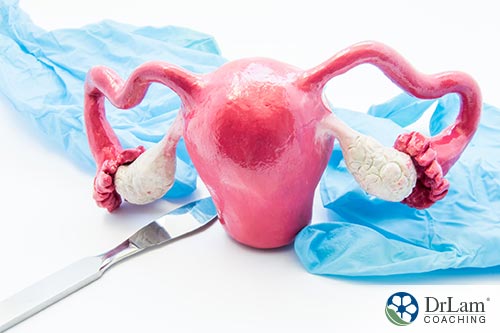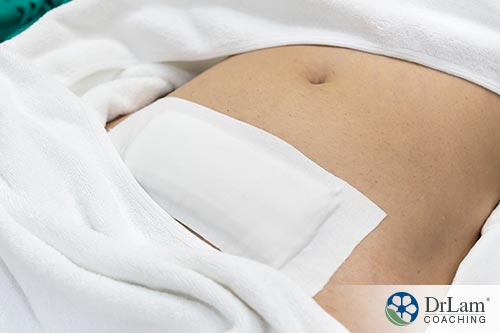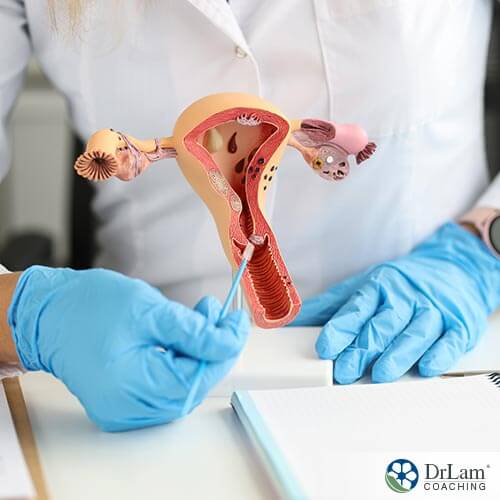 More than half a million women in the United States undergo a hysterectomy each year. It's a commonly recommended procedure. Yet it can have unintended consequences. A hysterectomy and hormones are closely related, and many women experience a hormone imbalance after the procedure, along with other symptoms like urinary incontinence or continued bleeding.
More than half a million women in the United States undergo a hysterectomy each year. It's a commonly recommended procedure. Yet it can have unintended consequences. A hysterectomy and hormones are closely related, and many women experience a hormone imbalance after the procedure, along with other symptoms like urinary incontinence or continued bleeding.
Before you agree to the procedure, it's important to consider your other options, possible consequences, and research on how likely it is that a hysterectomy will really help your condition. This article considers what you need to know before you get a hysterectomy.
These procedures have been around since the 1800s. They were commonly used to address "hysteria" in women. The term "hysteria" was broadly used to include even anxiety and depression! But while our reasons for hysterectomies are much better today, they are still not always the best answer for everyone.
Women undergo this procedure in the hope of addressing a variety of issues.
A hysterectomy is often done when cancer is involved. These cancers include ovarian cancer, cervical cancer, uterine cancer, and cancer of the uttering lining. Other options in dealing with these cancers include chemotherapy and radiation, both of which are sometimes suggested in conjunction with a hysterectomy.
Here the uterus becomes displaced, slipping into the vaginal area. This is quite common in women who have birthed many times, although obese and postmenopausal women may also become affected. Uterine prolapse may cause pelvic pain and urinary and bowel issues.
The result of a bacterial infection, this condition is hallmarked by severe pain. The condition is usually treated with antibiotics, but if untreated, it could spread and cause damage to the uterus.
A hysterectomy is often recommended in cases of severe, abnormal bleeding due to fibroids, infection, cancer, or hormone imbalance.
This condition refers to when the tissue lining the uterus grows outside of it. It may affect your ovaries, fallopian tubes, and pelvic cavity. This tissue growth could cause intermittent bleeding and intense pain.
Like endometriosis, this condition also sees the growth of the uterine lining in unfamiliar places, except that it grows inside the uterus walls and causes pain and bleeding.
This is where your uterine lining is much thicker than it should be. The condition, caused by prolonged periods of estrogen without progesterone in the area, often occurs during times of hormone upheavals. A good example is when a woman is in her perimenopause stage.
Non-cancerous growths on your uterine wall, uterine fibroids may grow large. The result is pressure on other pelvic organs. Many women with the condition may experience excruciating pelvic pain and heavy bleeding.
Many hysterectomy procedures result in a hormone imbalance. But a hysterectomy and hormones being affected is not necessarily the only option to address these issues. Sometimes, however, it may be your only option, such as for invasive cancer of the fallopian tubes, cervix, or ovaries, for example.
Before looking at a hysterectomy and hormones affected, it's important to consider that there are several types of hysterectomies possible. Not every hysterectomy needs to involve the entire removal of your uterus and other reproductive organs.

How you recover after a hysterectomy depends on the type of procedure.
A vaginal hysterectomy refers to the procedure being conducted through a small incision at the top of your vagina. Once the relevant organs are removed, this area is sewn up. The procedure is relatively short and usually lasts only an hour.
This type of procedure is preferred as it is less invasive than an abdominal hysterectomy. Your hospital stay is also relatively short, as is your recovery period.
A vaginal hysterectomy may be done under a general anesthetic (in which you are unconscious the whole time), a local anesthetic (which means you are awake but do not feel anything during the procedure), or a spinal anesthetic (which leaves you numb in the area below the waist).
Considered a more invasive procedure, an abdominal hysterectomy involves an incision made in your abdomen, usually along your bikini line or from your belly button to the bikini line. The latter usually occurs when fibroids or certain cancers are involved.
This procedure is usually done under general anesthetic and involves a longer hospital stay and recovery time. There will be scars afterward.
First, you could experience discomfort and pain directly after the procedure and expect a few weeks of recovery time. This, of course, depends on the type of procedure you had. Other symptoms are common as you heal as well.
It is quite common for a woman to experience a vaginal discharge and some bleeding after a hysterectomy. Fortunately, the discharge tends to become less over time, although you may experience it for about two to three months after the procedure. If your discharge has a smell, please see your healthcare provider as soon as possible as it could indicate an infection.
Bleeding should also clear up quite quickly. If it persists, becomes heavy, or you notice clots, contact your healthcare provider as soon as possible.
Many women notice a change in their bowel or bladder function directly after the procedure. Some may develop urinary tract infections, others constipation, and yet others experience both. Fortunately, these issues are relatively easy to address and may ease up after a while. In the meantime, you should drink plenty of water, and increase your fiber intake, especially from fresh, organic fruits and vegetables.
 Many women go on an emotional rollercoaster ride after having a hysterectomy. Some may feel sad. Some may feel she is no longer a woman, and others may grieve because they cannot bear any more children. They may experience a deep loss. This is common in those who have had to have the procedure due to cancer. Many women also go into a state of depression and may need counseling or even intervention from a healthcare professional.
Many women go on an emotional rollercoaster ride after having a hysterectomy. Some may feel sad. Some may feel she is no longer a woman, and others may grieve because they cannot bear any more children. They may experience a deep loss. This is common in those who have had to have the procedure due to cancer. Many women also go into a state of depression and may need counseling or even intervention from a healthcare professional.
If you have had a hysterectomy and feel your emotions are getting the better of you, please talk to your healthcare professional. They may help you get the necessary support you need, whether it is with a support group, a professional counselor, or through medications.
A hysterectomy involving the removal of your ovaries may result in menopausal symptoms. These include, amongst others:
Many healthcare professionals suggest hormone replacement therapy for women in this situation. Do know, however, that other, more natural solutions, are available to you.
A hysterectomy can have a profound effect on your hormones and thus impact the health of organ systems and processes throughout your body.
Your ovaries, together with your adrenals and thyroid gland (OAT axis), form part of your endocrine system. Control over the endocrine system starts with the Hypothalamic-Pituitary-Adrenal (HPA) axis. One of the key roles of your ovaries is estrogen and progesterone regulation.
Estrogen, which is produced in your ovaries, egg follicles, adrenal glands, and fat cells, is more than just a sex hormone. Besides its role in normal sexual and reproductive development in women, estrogen also plays a role in the menstrual cycle regulation, urinary tract, heart and blood vessel health, as well as the health of your bones, breasts, skin, hair, brain, and mucus membranes.
Progesterone, on the other hand, protects against various cancers, prepares the endometrium for the possibility of pregnancy after ovulation, and protects against muscle contractions in the uterus that could result in the rejection of an egg. This hormone is mainly manufactured in the corpus luteum of your ovaries. It is also critical for balancing estrogen.
Because the ovaries work together with the thyroid and adrenals, it is important for each part of this axis to work properly for the other two legs of the axis to function properly. They are co-dependent. These three organs also form the Hormone circuit of the NeuroEndoMetabolic (NEM) stress response, which is one of the major systems your body uses to cope with stress.
When something goes wrong with one leg of this axis, e.g., a hysterectomy and hormones become unbalanced, it compromises the functioning of your adrenals as well as the thyroid. Ultimately, a cascade of events could take place throughout your body that compromises the function of other organs systems as well.
The result could be a variety of health issues that seem unrelated, yet are connected to getting a hysterectomy. For those that already suffer from adrenal fatigue, a stress-related condition that weakens the adrenals and thyroid as well, a hysterectomy and hormones out of balance could have a devastating effect.
As to the connection between a partial hysterectomy and hormones, you may still see a hormone imbalance if your ovaries stay. Even if only part of your uterus is removed, there will still likely be a decline in proper hormone production, although not as severe as when the ovaries are also removed.
Your healthcare professional may suggest hormone testing if you suffer from hormone imbalance symptoms after a hysterectomy. These include:
By determining your various hormone levels, your healthcare provider can advise you on the different actions you can take to help ease your symptoms.
A hysterectomy is not always necessary. There are many other, less drastic options available in most cases. Exploring these options may also help you avoid complications from a hysterectomy and hormones that become unbalanced.
If you have fibroids, for example, you could look at the use of hormone medications, or consider undergoing a myomectomy or uterine artery embolization.
Good options for those suffering from endometriosis include a laparotomy, a laparoscopy, or simple oral contraceptives.
If you have uterine prolapse, you could consider a pessary device or doing Kegel exercises. Both help with the problem.
And uterine bleeding may improve with progestins, oral contraceptives, or even the insertion of an IUD.
Furthermore, a hysterectomy does not automatically cure endometriosis. It may develop after the surgery again.
Also, a hysterectomy could increase your risk of urinary incontinence.
So, before deciding that a hysterectomy is a solution to your problem, first explore the various other options available. Each organ in your body has an important function. Removing one is likely to impact other organ systems and functions as well.
Sometimes a hysterectomy and hormones acting up are the price one may have to pay for survival, like when you face certain types of cancer, for example. But many times, women undergo this procedure thinking it is a quick fix without really assessing the possible consequences or exploring other avenues to resolve their problems. Please do not do this. Seek out your options!
 If considering this procedure, please take note of the following:
If considering this procedure, please take note of the following:
If you would like to know more about a hysterectomy and hormones acting up, please do not hesitate to call us at (626) 571-1234 for a free initial consultation. Many women at Dr. Lam Coaching have similar concerns or have undergone the procedure. We have experience in dealing with this. You can also request a callback here.
A hysterectomy and hormones becoming unbalanced could worsen any condition associated with adrenal fatigue and hormone imbalance. It does affect hormone production. So, before having the procedure, please make sure to first explore all possible alternatives. A hysterectomy may not always be the best or only option.
